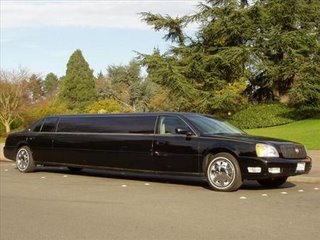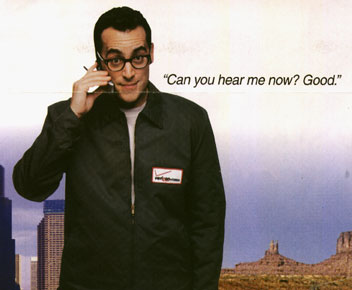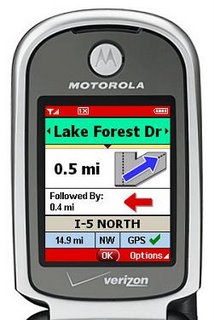
You would think an experienced bank robber like this one, would know enough to use a more inconspicuous getaway vehicle than a stretch limosine.
Hat tip to Autoblog.
OBSERVATIONS, THOUGHTS, OCCASIONAL RANTS, THINGS I FIND INTERESTING AND ANYTHING ELSE THAT I FEEL MOVED TO SHARE OR COMMENT ON - SOMETIMES THEY MAY EVEN INVOLVE THE LAW, LAWYERS, OR THE JUDICIAL SYSTEM.
George Burns

The excessively wordy and repetitive 104 page 'brief' made it more difficult to discern whether the defendant was advancing any meritorious allegations. After our careful review of the record, however, we conclude that several errors were made....(Emphasis added)For those who missed the cues here, the translation of what the court just said was that the lawyer did a lousy job representing the client's interest by laying out the alleged trial court errors in a coherent way (apparently the deputy attorney general wasn't any more effective for his client but got off a little easier since appellant's lawyer "started it"), so the court went ahead and did what the attorneys were supposed to do (and they aren't happy about having to do so).





The opening brief, which was filed in this case, is an egregious example of the substitution of rancorous rhetoric for legal and factual analysis in appellate briefs. Not only does this burden the court, but, more importantly, it is adverse to the client's interests, and we view such matters with dismay. It is sound legal and factual argument, rather than vituperative sniping, that is compelling to the court. When an attorney, in briefing the court, foregoes the former to engage in the latter, the client is deprived of an opportunity to persuade the court of the merits of his or her position.In addition to exhibiting contempt for the lower court judges, ignorance of the Rules of Court and a general lack of professionalism, the Supreme Court's opinion notes that, despite the existence of arguable precedent, the only authority counsel for appellant cites in favor of his position was this:
In exercising their power on behalf of the people and in fulfillment of their responsibilities, obligations and service to the people, ... judges of the appellate, circuit, and district courts may contemplate and reside with the life force and give consideration to the "Aloha Spirit.Help me out here. Is the "Aloha Spirit" sort of like the Common Law?

This is an appeal run amok. Not only does the appeal lack merit, the opening brief is a textbook example of what an appellate brief should not be.In these days of "pit bull" advocacy (both at the trial and appellate levels), some may not understand what the fuss is over. Some might say this is just an example of a lawyer zealously representing a client. To answer any who feel this way, I cannot improve upon the reasons given by Justice Scotland in this opinion:
In 76,235 words, rambling and ranting over the opening brief’s 202 pages, appellant’s counsel has managed to violate rules of court; ignore standards of review; misrepresent the record; base arguments on matters not in the record on appeal; fail to support arguments with any meaningful analysis and citation to authority; raise an
issue that is not cognizable in an appeal by her client; unjustly challenge the integrity of the opposing party; make a contemptuous attack on the trial judge; and present claims of error in other ways that are contrary to common sense notions of effective appellate advocacy....
These comments are harsh but deservedly so. An opening brief like the one filed in this case has many consequences. For starters, it undoubtedly is costly to the client to file such a brief that is long on words but short on substance. And by attacking the integrity of individuals involved in this case, the brief in effect falsely tells the client that she has been the victim of a grave injustice perpetrated by a corrupt system. In reviewing the case, this court will be able to see through such hyperbole. But having heard the message from her counsel, the client might give up on the system and not take the steps necessary to be able to reunify with her daughter. There also is a cost to those who have been so personally attacked by the brief. Everyone who toils in the juvenile courts recognizes that dependency proceedings often involve difficult and contentious matters pertaining to family relationships, and that emotions can run high. However, this does not mean they all have developed such thick skins that unjustified personal attacks against them create no harm. Certainly, portraying appellant’s developmentally disabled daughter in such a cruel way undermines, rather than advances, appellant’s relationship with her daughter, when a positive relationship is necessary to achieve appellant’s goal of reunification with her.Amen.
Another cost of the opening brief in this case is the need for respondent to file its own oversized brief, at undoubtedly great cost, to respond to every argument and show why, in the words of respondent’s counsel, the opening brief “misstates the facts or
includes facts not in the record, misstates the law, and/or fails to prove the claims made in [the opening brief].” In addition, the nature of the opening brief has caused this court to spend more time than it would have taken if the brief had not been so overwrought and over the top.

